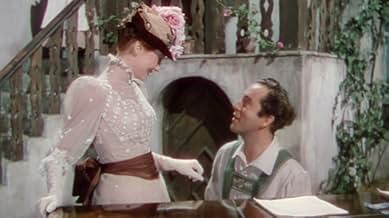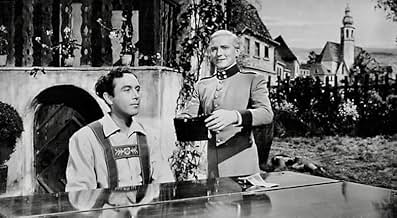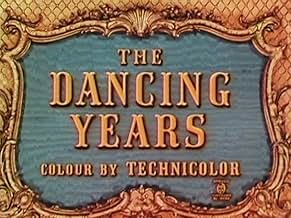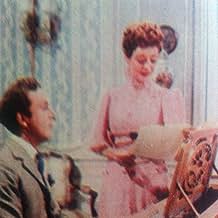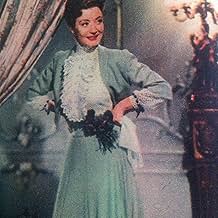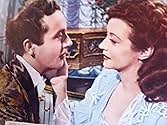Füge eine Handlung in deiner Sprache hinzuThe episodic story of a composer of operettas, Rudi Kleiber, in old Viennese days, and the two women in his life; Maria Zeitler, his sweetheart, later mistress, lost love, operetta star, fir... Alles lesenThe episodic story of a composer of operettas, Rudi Kleiber, in old Viennese days, and the two women in his life; Maria Zeitler, his sweetheart, later mistress, lost love, operetta star, first patron and the mother of a son he did not know he had; and of Greta, his first love and... Alles lesenThe episodic story of a composer of operettas, Rudi Kleiber, in old Viennese days, and the two women in his life; Maria Zeitler, his sweetheart, later mistress, lost love, operetta star, first patron and the mother of a son he did not know he had; and of Greta, his first love and companion in later years.
- Auszeichnungen
- 1 Nominierung insgesamt
- Maria Zeidler
- (as Gisele Preville)
Empfohlene Bewertungen
It was so awful that I avoided the music for months, and now listening to it again I feel I have to say that the film didn't deliver any of the magic I felt. Why? It is visually dull and has Dennis Price in the male lead role. For some reason this man had a great deal of popularity in his day, but the role needed charisma of which he has none. Good actor that he could be, in my opinion he was bad at romantic leads and he ruined this work, and along with the general lack of bite and failure to come to grips with the bitter sweet lyrics he made me want to look away. But it was 1950 and a pity that Laurence Harvey who appears in a bit part was not well known enough to be put into Price's role (dubbed for singing like Edmund Purdom). They should have waited!!!
Dennis Price is stiff and charmless in lederhosen in the romantic lead as (in Bosley Crowther's words) a "minor-league Johann Strauss", played originally by Novello himself. (In the original he was also Jewish and the action reached the Anschluss, whereas this version ends rather abruptly in 1926.)
(His starchy romantic rival for the hand of prima donna Maria Zeitler is ironically played by Anthony Nicholls, who with Price ten years later found himself reluctantly on Derren Nesbitt's mailing list in 'Victim'.)
Remarkably, the hero is permitted to father a child while remaining unmarried; though not, sadly, by Patricia Dainton, who, despite being delightfully bright-eyed and bushy-tailed as juvenile second female lead Grete, is given dismayingly short shrift throughout.
Wusstest du schon
- WissenswertesAccording to Elaine Parker's biography of Price, the actor spent breaks in location filming trying to teach the Austrian crew how to play cricket using a ball made from tape and a bat improvised from something found by the props department.
- Crazy CreditsOpening credits prologue: VIENNA 1910
- VerbindungenFeatured in Elstree Story (1952)
Top-Auswahl
Details
- Erscheinungsdatum
- Herkunftsland
- Sprache
- Auch bekannt als
- The Dancing Years
- Drehorte
- Produktionsfirma
- Weitere beteiligte Unternehmen bei IMDbPro anzeigen
- Laufzeit
- 1 Std. 38 Min.(98 min)
- Seitenverhältnis
- 1.37 : 1

